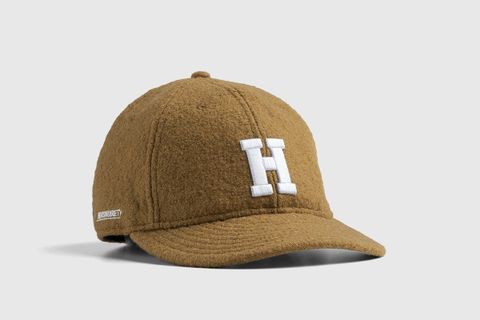Will Azuki's 24k Skateboards Become the IRL NFT Gold Standard?
“In crypto, there’s a concept I like to call ‘culture lag,’” Zagabond told Highsnobiety, giving the example of Supreme: it's not the label's hyped drops that's driving streetwear, but its adherence to skate culture. “The NFT space has become so much about flipping that the cultural aspects of NFTs still have a long way to catch up but I think that’s about to change, because there are true innovators here playing with technology.”
Regardless if NFTs follow streetwear, skate culture, or that incentive to ‘flip’, Azuki’s founder Zagabond (or Z, as he’s often known) is banking on a combination of all three.
Soon, Azuki will release a series of nine golden skateboards, complete with a 24k gold-plated deck, in Hong Kong’s K11 Musea Mall. The golden skateboards will be tied to a Physical Backed Token (PBT): a cryptographic chip that can be scanned to prove ownership of the physical item created by Chiru Lab, the parent company of Azuki, founded by Z in 2021.
“We like to plant at the intersection of digital and physical. With PBT, we want to create an open standard that people can create implementations and experiences on top of,” said Z. He considers PBT a milestone that opens new doors for what Azuki has been building over the past year and a half. It’s also a culmination of what Z hopes is a positive impact on web3.
The man known as Zagabond started his career at Google and Amazon as in sales and partnerships, learning about the industry’s “monolithic” scale during the course of his two-and-a-half-year experience in the corporate world.
This encouraged him to embrace the decentralized nature of crypto as he became part of the founding team for 0x, a peer-to-peer trading platform for ERC-20 tokens.
After four years at 0x, NFT projects like NBA TopShot and Bored Ape Yacht Club piqued Z’s interest. To him, one of web3’s core appeals was the opportunities it created for people to take ownership in the projects they’re engaged with, particularly “at the intersection of digital identity, collectibles, and brand.”
“Web3 really brought this new culture of digital identity, digital community. I wanted to build a brand that resonates with the generation of people born in web3, similar to how ‘internet culture’ is now just culture. I got the team together to map out this vision of building an anime universe that is both digital and physical.”
And so, the Azuki universe was born. As an NFT collection, Z believes there’s an opportunity to “create emotional attachments to the brand, characters, and story”. After interviewing around 20 different artists, the team ended up bringing on Steamboy, a former character artist for Overwatch.
Azuki became a smash hit after launching in January 2022, quickly becoming one of web3’s fastest-growing NFT projects. However, the swift success was met with similarly abrupt backlash, as people on Twitter accused Z of ‘rug pulling’ Tendies, CryptoZunks, and CryptoPhunks, three other NFT projects he helped shape.
Twitter sleuths went into detail, accusing Z of wash trading — buying and selling one's own security to pump the volume — and netting over $3 million across the three projects. Z, meanwhile, simply describes his previous projects as "failures."
It's not uncommon for tech companies to raise and lose millions, but NFT projects are often put under more scrutiny by buyers expecting utility or IP in return.
“The web2 mantra is ‘move fast, break things,’” Z said when asked about web3 accountability. “With web3, I learned that the community is everything. Empathizing with them is a necessary skill if you want to build something meaningful. That’s our core value at Azuki, that community comes first. It’s the main reason we have a vibrant and loyal following.”
According to the numbers, Azuki’s does generate headline-worthy sales. By September 2022, eight months after Azuki launched, collectors were willing to pay upwards of 105 and 106 ETH ($135,000-$142,700 at the time) to join the community.
This success inspired rumors of Chiru Labs seeking Series A funding to the tune of $30 million, though Azuki’s team refuted the whispers (for now).
Still, Chiru Labs still holds outsized hopes of making Azuki the "gold standard" for future physical NFT activations. Though, by making its PBT tech open source, Chiru Labs isn't pinning its hopes solely on Azuki: the goal is to level the playing field and invite everyone to the pitch.
“There are smart contract developers creating new financial protocols that are changing the global financial structure,” Z said. “If you look at fashion and streetwear, you see the shift.”


